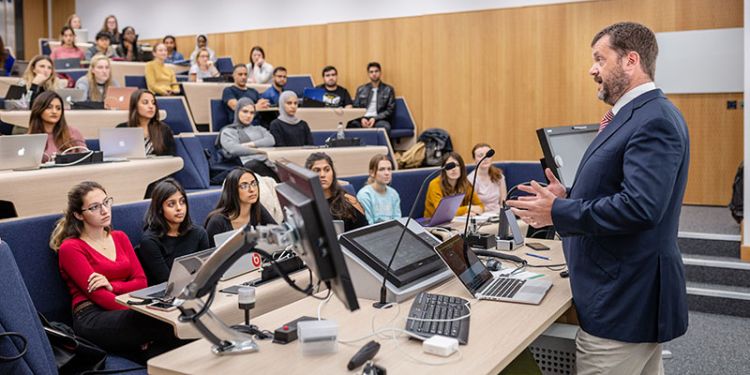Dental education research

Research and scholarship in dental education continues to grow strategically, with much to learn and share on the many educational innovations being driven by the School of Dentistry. This group aims to promote and encourage a scholarly, academic and reflective approach to dental education with a focus on:
- curriculum development
- how best to assess and provide feedback for students (at various stages of their undergraduate and postgraduate careers)
- professionalism and what it means in the 21st century for dental professionals
- team working and its benefits
- leadership and management
- admissions processes and the parameters that define a successful dentist
A number of postgraduate students have worked with the group as part of their PhD research degree programmes. We also involve undergraduate students participating in research (with consent and ethical approval). A current PhD student is studying the factors that lead to successful admission to the Dental Surgery programme and comparing these with performance as an undergraduate (both existing students and recent graduates), to investigate if there are correlations.
Key Themes
Management and Leadership
Management and leadership is a key requirement of the educational experience of dental students, as defined by the General Dental Council. Research in this area challenges many of the assumptions that are made about leadership in dentistry – where, when, why and how leadership happens, and how leadership education is designed to prepare students for real-world experience. A practice and contextual rethinking of leadership for dentistry is considered.
Haptic Technology
This is an exciting area of research and three PhD students have successfully investigated the relationship between virtual operative skill practice and student learning as well as exploring the predictive relationship between performance on virtual reality systems and fine motor skills. We have considered traditional methods of training and skill acquisition, using phantom heads and modern virtual reality systems, aiming to discover novel methods by which simulation can aid, improve and advance the way dentistry is taught for future generations. Our haptic dental training facility and dental simulation programme are encompassed within the educational technology theme of the Leeds Centre for Immersive Technology.
Members
- Dr Jane Wardman
- Dr Nigel Bubb
- Dr Aradhna Tugnait
- Ms Victoria Yorke

